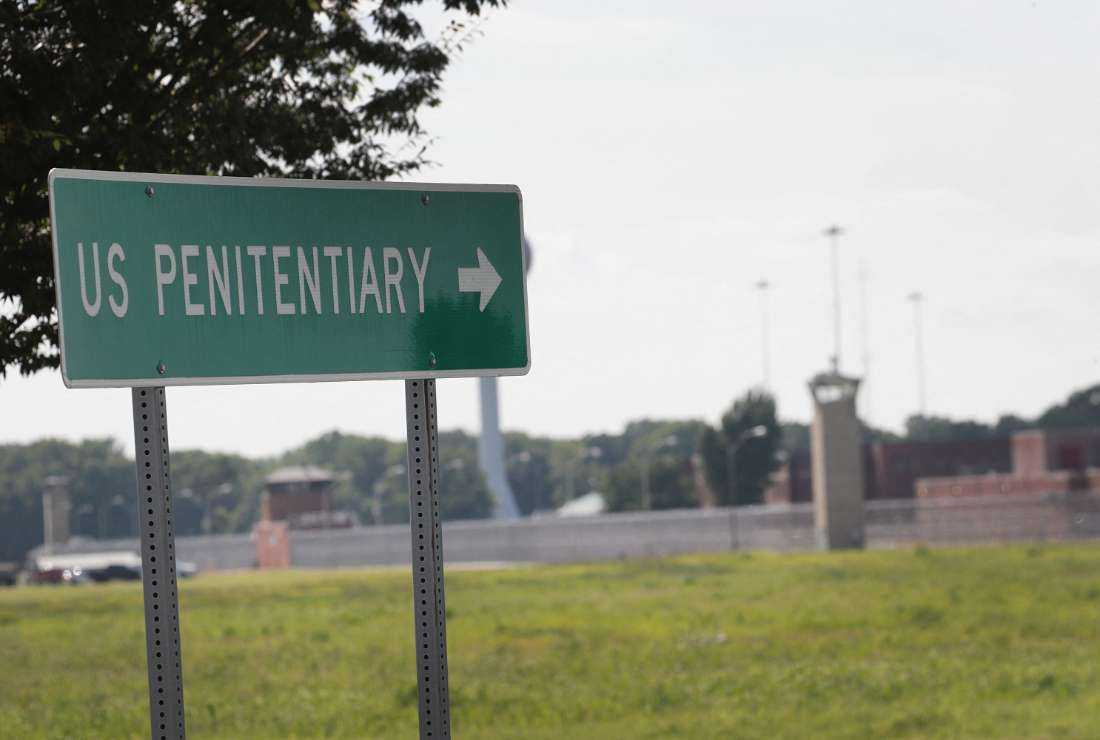
A sign directs visitors to the entrance of the Federal Correctional Complex Terre Haute on July 25, 2019, in Terre Haute, Indiana. (Photo: AFP)
Just five states -- Texas, Florida, Missouri, Oklahoma and Alabama -- carried out executions in 2023, while a majority of U.S. states have banned or paused the practice by executive order, according to a new report by the Death Penalty Information Center.
However, there was an increase in executions in 2023 from the previous year: 24 people were executed in 2023, while 18 were executed in 2022. This year, the report said, was the ninth consecutive year with fewer than 30 executions.
The report also found that people of color were overrepresented among those executed in 2023, as nine of the 24 prisoners executed were people of color.
The report attributed the increase in executions from 18 in 2022 to 24 in 2023 to Florida Gov. Ron DeSantis resuming the practice in the state ahead of his presidential bid.
Earlier in 2023, DeSantis signed legislation, SB 450, eliminating the state's requirement that juries in capital punishment cases agree unanimously to recommend death sentences, lowering the number of jurors needed to hand down a death sentence from 12 to eight, the lowest threshold of any U.S. state. Florida's Catholic bishops criticized the legislation, which is an outlier among states where the death penalty remains legal. Of the 27 states that permit capital punishment, three do not require a unanimous jury to impose it. Alabama allows a 10-2 decision, while Missouri and Indiana allow a judge to decide when there is a divided jury, according to the National Center for State Courts.
DeSantis, who is seeking his party's nomination in the 2024 Republican presidential primary, is Catholic. He has sought to expand the use of the practice in Florida.
The report also noted that earlier in November, Gallup found that a record-high percentage of Americans (50%) said the death penalty is applied unfairly in the U.S., the highest percentage since Gallup started asking the question in 2000.
Robin M. Maher, the Death Penalty Information Center's executive director, said in a statement the report shows "most Americans no longer believe the death penalty can be imposed fairly."
"That important change can also be seen in the unprecedented show of support for death-sentenced prisoners from conservative lawmakers and elected officials this year, some of whom now oppose use of the death penalty in their state."
The Catholic Church opposes the use of capital punishment. St. John Paull II said that "the new evangelization calls for followers of Christ who are unconditionally pro-life," and called the death penalty "both cruel and unnecessary."
In his 2020 encyclical "Fratelli Tutti," Pope Francis cited the writings of St. John Paul II, teaching that his predecessor "stated clearly and firmly that the death penalty is inadequate from a moral standpoint and no longer necessary from that of penal justice."
"There can be no stepping back from this position," Pope Francis wrote. "Today we state clearly that 'the death penalty is inadmissible' and the church is firmly committed to calling for its abolition worldwide."
In 2018, Pope Francis revised paragraph No. 2267 in the Catechism of the Catholic Church to reflect that position.
Krisanne Vaillancourt Murphy, executive director of Catholic Mobilizing Network, called the report "encouraging" in a statement saying "we saw most states growing more and more reluctant to engage with the death penalty this year."
"It's not lost on the American public that capital punishment is too flawed and risky, too arbitrary and unfair, too cruel and dehumanizing to justify pursuing executions," Vaillancourt Murphy said.
The data points in the report, she said, "unequivocally indicate that the practice is on its way out in this country."
"We believe that the few outlier states that continue to execute and sentence people to death can, and ultimately will, course correct and distance themselves from this inhumane practice," Vaillancourt Murphy said.
Catholics have a role to play in pushing the few remaining states that actively use the death penalty to stop their use of the practice, Vaillancourt Murphy added.
"As Catholics who believe every life is sacred, we have an important message to share with elected leaders in states where the death penalty still persists," she said. "In the coming year, I pray more Catholics will harness their faith to call for an end to this flawed, immoral system and to seek approaches to justice that honor the sanctity of life, rather than throw it away."


